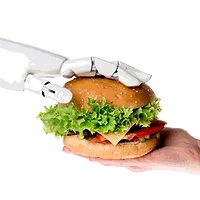Food in the 21st Century: Growing Leaders to Feed the Future

For the majority of Americans, thinking about where and how their food reached their plate is not a frequent activity. More top of mind for the average consumer are concerns about whether the new beer-cheese chips might be tasty. This is no surprise to those working in the food industry, since we have made it our goal to provide appealing, affordable, and consistently safe products to the consumer.
However, we are facing new challenges in the food system. The global population is expected to grow to near 10 billion people in the next 30 years. This will occur as extreme weather events continue to rise, the food supply chain vastly expands, and action for sustainable production increases. To address these complicated issues impacting the food system, the food industry must focus its efforts on developing next-generation (next-gen) leaders to prepare for the future. This was the genesis of the new Integrated Food Systems Leadership (IFSL) program.
There are many in the food industry starting to ask difficult questions, such as the following: How are we going to feed the global population in the future? How are we going to stop wasting 30 percent of food produced in the end-to-end food system? How are we going to modernize our food safety system from farm to fork?
Clearly, we have a lot of work to do. Oddly enough, the process starts simply—by fostering development of and instilling holistic systems-thinking skills. To navigate the complexities of the global food system, we need people who can think broadly and are empowered to change the status quo. Professionals in the food industry were hired for their knowledge in a specific area, and they are very good at their particular specialty. However, to become the leaders needed throughout the 21st century, these same people will need to consider how the whole food production system and decisions made throughout the system, from sourcing and production to supply chain and retail, affect people and the environment.
The IFSL program aims to help develop the next-gen leaders that have the ability to approach problems in a collaborative and interdisciplinary way. We’re breaking down silo mentality to build change agents needed to produce better results in the food system. To create this new graduate-level certification program, three colleges at the University of Minnesota came together: the College of Food, Agricultural and Natural Resource Sciences, the School of Public Health, and the College of Veterinary Medicine. By offering various perspectives from professors with different backgrounds as well as having input from food industry advisors, the IFSL program offers a unique cross-disciplinary framework of food systems thinking.
As a result, leaders of tomorrow in the global and interconnected supply chain for food and beverages must continue to expand their geographic reach of sourcing ingredients and food product innovation to offer customers exciting new flavors, products, and ingredients. These leaders will need to understand how all the pieces of the global food production system work together—how when one change is made to the system, it will produce ripple effects across the food system.
So looping back to those chips, if the consumer insight team determines that beer-cheese is the next greatest chip flavor, the leader of tomorrow should quickly lead their team to understanding that this simple question will affect almost every area in the production, from grower to food safety personnel to sales. Questions across the production system from farm-to-fork will need to be addressed:
• How do the chip sales projections change the demand for the potatoes?
• Are the flavoring and cheese components approved food ingredients?
• What is the flavor formulation?
• How will the flavors and cheese be sourced and what risks are present in that supply chain?
• How will the flavor addition change manufacturing?
• What are the food safety concerns to be addressed?
• Will consumers like the taste?
• How will the product be labeled and advertised?
Typically, these questions are addressed by individual groups with specific expertise who often don’t anticipate questions from other groups. This leads to issues where the product tastes great, but a key ingredient may not be approved for use or the volume of the flavor isn’t available to meet demand or the flavor application will require a facility modification. However, the next-gen leader will be prepared with a holistic view and skills to build collaborative teams that proactively address the hurdles to becoming the market leading chip flavor.
With a systems-thinking approach, professionals can begin to understand how their roles fit into the bigger picture and enable them to create connections to move great ideas ahead more efficiently. Broadening the vision of the future leaders will help achieve a truly sustainable farm-to-fork food system capable of feeding the future throughout the 21st century.
Jennifer van de Ligt, Ph.D., is an associate professor in the College of Veterinary Medicine at the University of Minnesota-Twin Cities. She is the director of the Integrated Food Systems Leadership Program and the associate director of the Food Protection and Defense Institute. Dr. van de Ligt has an extensive background in animal feed and human food production, nutrition, product development, and food safety and regulations. She uses this background to lead the IFSL program dedicated to improving the leadership and systems thinking capabilities of early to mid-career professionals affiliated with any aspect of the food system. Prior to joining UMN, she held numerous leadership positions at a global food company operating in 70 countries.
Looking for quick answers on food safety topics?
Try Ask FSM, our new smart AI search tool.
Ask FSM →






